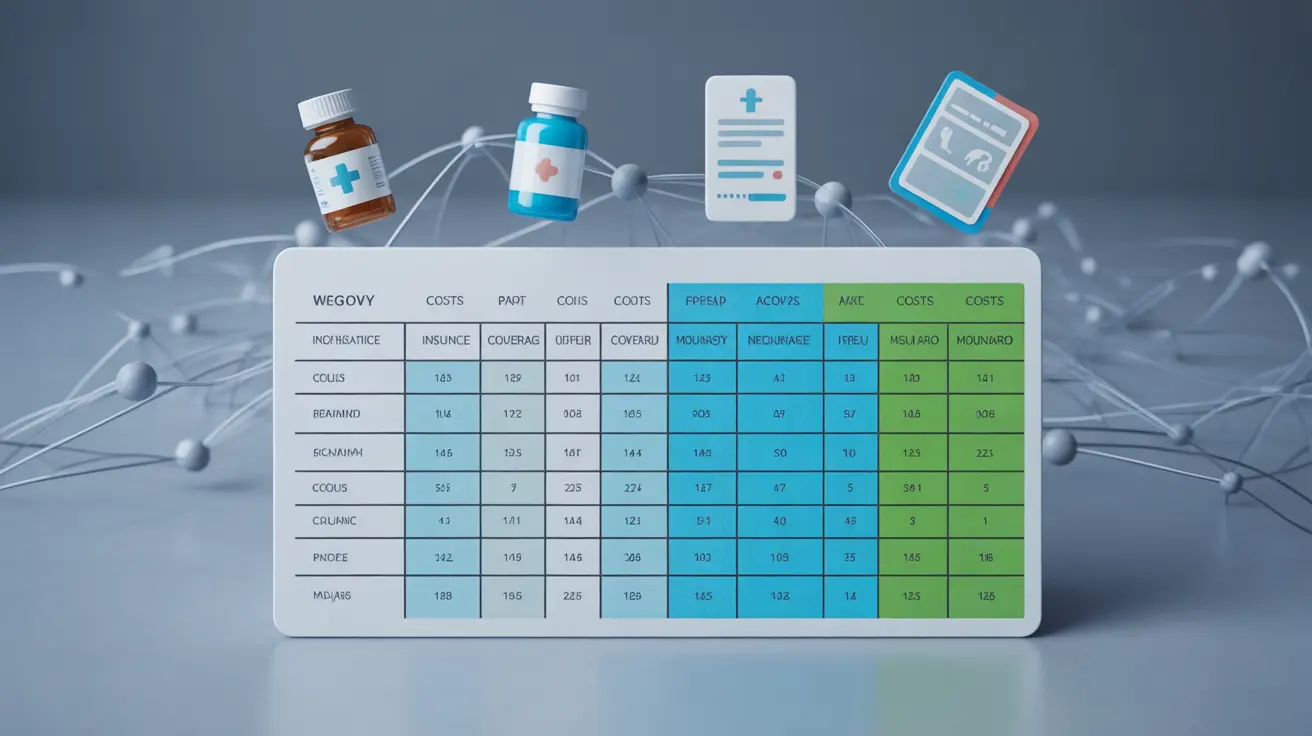Understanding the cost differences between Wegovy and Mounjaro has become increasingly important as these revolutionary weight loss medications gain popularity. Both medications have shown impressive results for weight management, but their costs can vary significantly and impact treatment accessibility.
This comprehensive guide breaks down the pricing structures, insurance coverage, and additional expenses associated with both medications to help you make an informed decision about your weight loss journey.
Out-of-Pocket Costs for Wegovy and Mounjaro
Without insurance coverage, the monthly cost for these medications can be substantial:
- Wegovy: Approximately $1,300-$1,500 per month
- Mounjaro: Approximately $1,000-$1,200 per month
These prices reflect the retail cost at most U.S. pharmacies, though actual prices may vary by location and pharmacy. It's important to note that these medications require monthly prescriptions, making the annual cost a significant consideration for most patients.
Insurance Coverage and Common Limitations
Insurance coverage for these medications varies significantly among providers and plans:
- Medicare and Medicaid typically don't cover either medication for weight loss
- Private insurance coverage depends on specific plan policies
- Many insurers require prior authorization and documentation of medical necessity
- Some plans may require step therapy, trying other weight loss methods first
Even with insurance coverage, patients often face substantial copays or may need to meet specific criteria to maintain coverage.
Available Savings Programs and Manufacturer Support
Both medications offer manufacturer savings programs to help offset costs:
- Wegovy Savings Card Program
- Can reduce monthly costs to as low as $25
- Available for eligible commercially insured patients
- Limited duration of savings
- Mounjaro Savings Program
- Offers significant cost reduction for eligible patients
- May lower monthly costs to $25-$70
- Time-limited promotional pricing for qualified individuals
Understanding U.S. Pricing vs. International Markets
The cost disparity between U.S. and international markets for these medications is notable due to several factors:
- Different pricing regulations in various countries
- U.S. pharmaceutical pricing structures
- Patent protection and market exclusivity
- Limited competition in the U.S. market
Additional Expenses to Consider
Beyond the medication costs, patients should budget for:
- Regular medical appointments and monitoring
- Blood work and laboratory tests
- Medical supplies (needles, alcohol swabs)
- Potential side effect management
- Dietary adjustments and supplements
Frequently Asked Questions
How do the monthly costs of Wegovy and Mounjaro compare if I pay out of pocket without insurance?
Without insurance, Wegovy typically costs $1,300-$1,500 per month, while Mounjaro ranges from $1,000-$1,200 monthly. These prices can vary by pharmacy and location.
Does insurance typically cover Wegovy or Mounjaro for weight loss, and what are the common limitations?
Insurance coverage varies widely. Many private insurers cover these medications with prior authorization, but Medicare and Medicaid typically don't cover them for weight loss. Common limitations include step therapy requirements and specific BMI thresholds.
What savings programs or coupons are available to reduce the cost of Wegovy and Mounjaro?
Both manufacturers offer savings programs that can reduce costs to $25-$70 per month for eligible patients with commercial insurance. These programs have specific eligibility requirements and time limitations.
Why are Wegovy and Mounjaro much more expensive in the U.S. compared to other countries?
U.S. prices are higher due to factors including less regulated pharmaceutical pricing, patent protection, market exclusivity, and limited competition compared to other countries' healthcare systems.
What additional expenses should I expect besides the medication cost when using Wegovy or Mounjaro for weight loss?
Additional expenses include regular medical appointments, blood work, monitoring tests, medical supplies like needles and alcohol swabs, and potential dietary supplements or adjustments needed during treatment.




